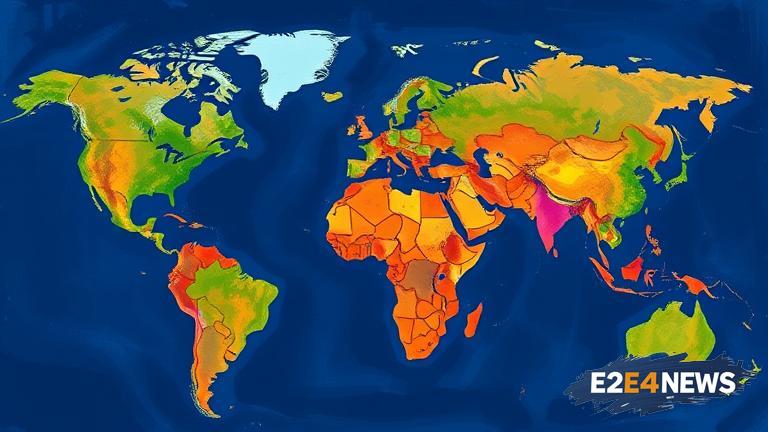The COVID-19 pandemic has left an indelible mark on the global economy, with widespread lockdowns, border closures, and a significant decline in international trade. As the world slowly begins to recover, policymakers and business leaders are grappling with the challenges of a post-pandemic world. One of the most pressing concerns is rising inflation, which has been fueled by a combination of factors, including supply chain disruptions, increased demand, and monetary policy decisions. The war in Ukraine has also had a significant impact on the global economy, with sanctions on Russia leading to a surge in energy prices and a decline in trade. Furthermore, the ongoing pandemic has accelerated the shift towards digitalization, with many businesses adopting remote work arrangements and investing in digital technologies. However, this shift has also created new challenges, including cybersecurity threats and the need for increased investment in digital infrastructure. In addition, the pandemic has highlighted the importance of global cooperation and the need for international institutions to work together to address common challenges. The World Health Organization, the International Monetary Fund, and the World Trade Organization have all played critical roles in responding to the pandemic and supporting the global recovery. Despite these efforts, the road to recovery will be long and arduous, with many countries facing significant challenges, including rising debt levels, declining economic growth, and increasing income inequality. The Asian region, in particular, has been heavily impacted by the pandemic, with many countries experiencing significant declines in economic growth and trade. However, the region is also home to some of the world’s most dynamic and innovative economies, including China, Japan, and South Korea. These countries have been at the forefront of the digital revolution, with significant investments in technologies such as artificial intelligence, blockchain, and the Internet of Things. The European Union has also been actively engaged in efforts to support the global recovery, with a focus on promoting trade, investment, and economic growth. The EU’s pandemic recovery plan has provided significant funding for member states to invest in digital infrastructure, renewable energy, and other key sectors. In the United States, the Biden administration has launched a series of initiatives aimed at supporting the recovery, including a major infrastructure investment program and a range of policies aimed at promoting trade and economic growth. However, the US economy is also facing significant challenges, including rising inflation, declining economic growth, and increasing income inequality. The pandemic has also had a significant impact on the global labor market, with many workers experiencing job losses, reduced hours, and declining wages. In response, governments and international institutions have launched a range of initiatives aimed at supporting workers and promoting employment, including job training programs, unemployment benefits, and labor market reforms. Despite these efforts, the road to recovery will be long and challenging, with many countries facing significant obstacles, including rising debt levels, declining economic growth, and increasing income inequality. The global economy is also facing significant environmental challenges, including climate change, pollution, and biodiversity loss. In response, governments and international institutions have launched a range of initiatives aimed at promoting sustainable development, including investments in renewable energy, green infrastructure, and sustainable agriculture. The private sector is also playing a critical role in promoting sustainable development, with many companies investing in sustainable technologies and practices. However, more needs to be done to address the scale and complexity of the environmental challenges facing the global economy. In conclusion, the global economy is facing significant challenges as it navigates the aftermath of the COVID-19 pandemic. Rising inflation, supply chain disruptions, and geopolitical tensions are all threatening to derail the recovery, while the ongoing pandemic has accelerated the shift towards digitalization and highlighted the importance of global cooperation. Despite these challenges, there are also opportunities for growth and innovation, particularly in the areas of digital technologies, sustainable development, and international trade. With the right policies and investments, the global economy can recover and thrive in the years ahead, but it will require a concerted effort from governments, international institutions, and the private sector.




